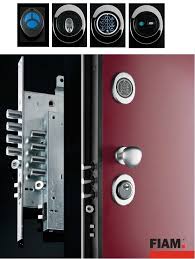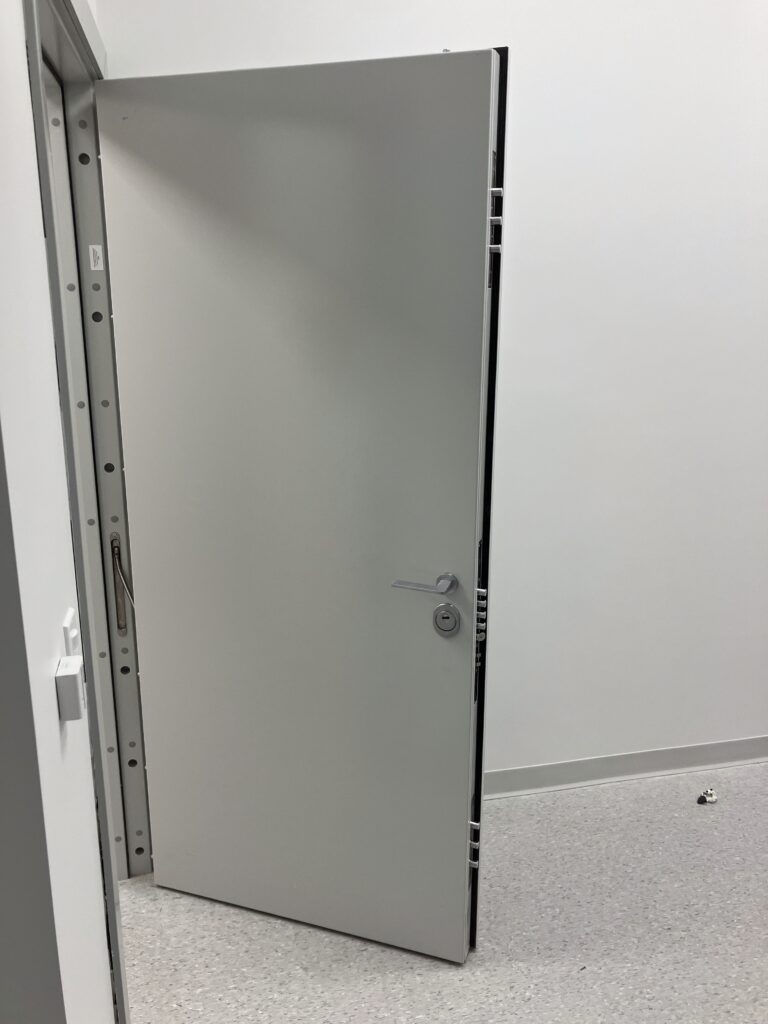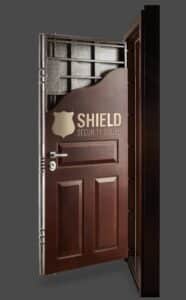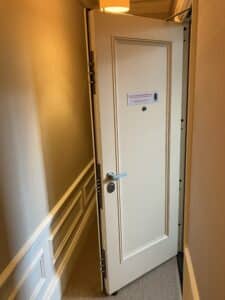Article Summary
- The difference between deadbolts and multi-point locking systems goes beyond appearances and has a major effect on which provides more forced entry protection.
- There are multiple reasons why security experts prefer multi-point systems for their lock strength.
- When looking for home invasion protection, your goal is to buy as much time as possible for your family in an emergency, and multi-point locking systems provide a significant amount of time compared to deadbolts.
Multi-Point Locking Systems vs. Deadbolts: Everything You Need To Know
 When looking to secure your home from potential dangers, having the best type of lock for your needs is essential. Typical locking systems come with a host of vulnerabilities that criminals are well aware of. By investing in your home’s lock strength, you can provide your family with peace of mind.
When looking to secure your home from potential dangers, having the best type of lock for your needs is essential. Typical locking systems come with a host of vulnerabilities that criminals are well aware of. By investing in your home’s lock strength, you can provide your family with peace of mind.
When discussing deadbolt vs multi-point lock systems, it’s easy to think that one has a clear advantage over the other. However, not all high security door locks are the same, especially these two types of locks. Today, we’ll cover the difference between multi-point locking systems and deadbolts so that you can make an informed choice for your family’s safety.
What Is A Multi-Point Locking System?
Multi-point locking systems work by using high-security mechanisms at multiple points along the doorframe to secure the door. This is in contrast to the typical deadbolt lock, which only secures a door by the handle. Think of a multi-point lock as a type of lock that has multiple deadbolts, sealing the door on three or even four sides. This design allows the force applied to the door to spread, making it much more difficult to force a door with a high lock strength multi-point locking system open.
The mechanism works by all the lock points engaging simultaneously upon turning the key or activating an electronic lock. Positions are secured with vertical and horizontal bolts that project into the doorframe itself, providing a solid anchor. Our experts at Shield Security Doors prefer multi-point locking systems for this and multiple other reasons – these high security door locks come standard on all our custom home security doors.
Typically, multi-point locking systems are identified by the number of points connected to the door frame, with 3-point and 5-point options most common. For high-security needs, specialized systems of up to 20-points can provide premium protection against forced entry.
Understanding Standard Deadbolts: Simplicity with Limitations
Obviously, while standard deadbolts provide some level of protection, they come with a hefty set of limitations. Single-point locks work by securing one point of a door’s strength with a lock – typically with the handle or a single internal locking mechanism. This makes it much easier to force a door down than with multi-point locking systems.
As we’ve discussed in our security door locks comparison, deadbolts have a host of issues when it comes to forced entry protection. A key issue is that because a deadbolt is situated in a place of prominence above the door handle, it’s more susceptible to being kicked in or pried out with a tool. Multi-point locks will not only be more challenging to pry or force open, but also have several points of strength and are less vulnerable to a single failure.
Force Resistance: Why More Locking Points = More Security
As discussed, multi-point locking systems excel in dispersing force. This is especially true with repeated impacts, as the multiple points of connection allow each blow to be dispersed through multiple points of the door frame. The multi-points are strategically located to increase the overall strength of your door. On the other hand, single-point locks are vulnerable to force because all the stress and force is being applied to a single point – the singular latch or deadbolt. Imagine trying to kick down a door. You would kick and apply all your force right by the handle, putting all the stress on the single deadbolt. As soon as that one deadbolt fails, the door will open. But with a multi-point lock, that force is split between up to a dozen bolts. Even if one were to fail, the remaining locks would keep the door safely sealed.
In real-world scenarios, this difference costs you valuable time in an emergency. For example, if an intruder is trying to kick in your door, a multi-point lock will be able to absorb the force through multiple bolts – meaning that when one fails, the others maintain strength. A single-point lock fails when its only connection is damaged, broken, or otherwise fails to work.
Material Integration: Frame & Lock System Strength
In many break-ins, the point of failure is not the front door’s lock itself, but rather the frame around the door, splintering, bending, or breaking around the strike plate. The strike plate is what a single-point deadbolt system is anchored onto. This is in contrast to the force dispersion displayed with multi-point locking systems, making the strength of the frame still essential but much less critical due to the load-sharing design. The internal strength and materials of your door are essential to its overall strength.
It’s important to remember that your security is only as strong as its weakest point. If you have a weak wooden frame, it doesn’t matter what kind of lock or how many you use, as an intruder would simply break the frame to get in.
In a real-life scenario, a multi-point locking system makes your doorframe much more secure because no single part of it must withstand a full hit or kick. High security door locks go beyond mere show and enhance the integrity of a door by using smart engineering to achieve home invasion protection you can rely on.
Final Verdict: Which Locking System Is Right for High-Security Needs?
Overall, the right type of security for your needs will vary depending on what kinds of threats and risks your family faces. In many neighborhoods and cities, the security provided by a deadbolt is, at best, average. With a multi-point locking system, you can feel safe and secure knowing that your doors have multiple points of strength and security. By going beyond a singular deadbolt, you make an investment in your family’s safety and your property’s value.

If you’re interested in learning more about multi-point locking systems and would like a quote for a custom-installed system, reach out to our professional team at Shield Security Doors. Multi-point locking systems are the standard in our doors and the ideal choice for those taking their home security seriously. We’re happy to answer any questions you may have about multi-point locking systems, the ins and outs of installation, and how our team can set you up with the security system right for your needs.


